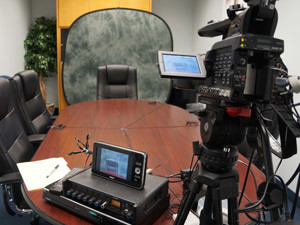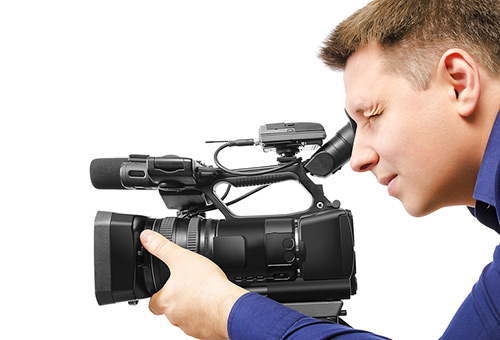Efficient Legal Videography for Lawyers.
Efficient Legal Videography for Lawyers.
Blog Article
The Role of Legal Videography in Depositions and Tests
Lawful videography has become an essential tool in both depositions and tests, offering a complex technique to documenting witness testimonies. By catching not just the talked word yet also the subtleties of non-verbal interaction, this medium enhances the integrity of testaments and preserves vital proof for future process. As lawful specialists progressively acknowledge its worth, it motivates a deeper evaluation of just how these aesthetic records can influence juror assumptions and trial outcomes. What ramifications might these advancements hold for the future of lawful technique?
Significance of Legal Videography
Lawful videography plays an essential duty in the documentation and presentation of depositions and trials. This specialized field incorporates technological skills with lawful understanding to develop a dependable record of proceedings that can dramatically affect case end results. The aesthetic aspect of lawful videography improves the understanding of witness testimony, permitting jurors and judges to observe not just the spoken words but likewise the behavior, emotions, and body movement of the witnesses.

The significance of legal videography extends beyond the court room; it also plays a crucial function in maintaining proof for future referral, whether for allures or more lawsuit. Because of this, its integration right into the legal process is important for making sure a reasonable and precise representation of the realities, eventually adding to the pursuit of justice.

Process of Legal Videography
While capturing the nuances of depositions and tests, the procedure of legal videography includes a number of critical steps that make sure top quality, precise recordings. Originally, a professional legal videographer prepares by examining the instance materials and understanding the certain requirements of the deposition or trial. This preparation includes familiarizing themselves with the individuals and the context, which assists in capturing important details.
On the day of the recording, the videographer establishes the required tools, which typically includes high-definition cams, microphones, and correct lights. Ensuring optimal angles and sound high quality is critical, as it straight influences the performance of the recording. The videographer connects with lawyers and participants to establish protocols, ensuring that everyone understands the recording procedure.
Throughout the deposition or test, the videographer thoroughly tape-records the procedures, paying very close attention to both verbal and non-verbal cues. legal videography. This consists of recording the attitude and responses of witnesses and attorneys. After the session wraps up, the videographer may modify the video footage for clearness published here and compliance with legal criteria, creating an end product that properly mirrors the procedures for future recommendation and use in legal contexts
Advantages in Depositions
The unification of videography in depositions uses various advantages that enhance the overall procedure of collecting evidence. One primary benefit is the ability to record witness testaments with aesthetic and auditory integrity, giving a much more precise representation of the witness's demeanor, tone, and body movement. This multidimensional method allows lawyers and juries to analyze integrity much more effectively than standard written transcripts alone.
In addition, videographed depositions work as an effective tool for protecting testimony. Must a witness become not available for test, their tape-recorded deposition can be played in court, ensuring that their evidence continues to be available and pertinent. This aspect substantially reduces the danger of shedding essential details that could affect instance outcomes.
Moreover, making use of legal videography promotes much better prep work for lawyers. Evaluating video footage permits lawful groups to evaluate and fine-tune their approaches, identifying strengths and weaknesses in their situations. This primary benefit can lead to more compelling presentations in court.
Finally, videography boosts the total professionalism and reliability of Recommended Reading the deposition procedure, instilling self-confidence in customers pertaining to the thoroughness of their lawful representation. By leveraging technology, lawyers can dramatically enhance the effectiveness of depositions.
Effect On Tests
In numerous tests, the combination of videography can considerably influence the discussion of evidence and the court's understanding. Lawful videography catches witness testimonies and critical proof in a dynamic style, allowing jurors to involve with the material on multiple degrees. This aesthetic part improves the storytelling element of a trial, providing context and emotional vibration that typical text-based proof may lack.
Moreover, video clip recordings can offer as powerful tools for impeachment throughout interrogation. When inconsistencies occur between a witness's previous declarations and their court testimony, video proof supplies an objective reference that can guide jurors' viewpoints. This immediacy and clearness can bolster the credibility of an event's story while concurrently weakening opposing arguments.
In addition, making use of videography can help simplify complicated information, making it more easily accessible to jurors who might have a hard time to understand elaborate information provided only via verbal testament. By integrating visuals with auditory info, legal videography can improve retention and understanding, ultimately affecting the jury's decision-making procedure. The effect of videography in tests prolongs past mere appearances; it plays a vital role in shaping the lawful landscape and end results.
Future Trends in Legal Videography
As we look toward the future of lawful videography, numerous emerging patterns assure to reshape its role within the courtroom. One substantial pattern is the assimilation of expert system (AI) in video clip analysis and editing and enhancing - legal videography. AI can enhance the process of identifying vital moments in recorded depositions, permitting attorneys to quickly access pertinent material, thereby boosting effectiveness in case prep work
Additionally, the surge of online fact (VR) and augmented truth (AR) technologies is anticipated to transform just how jurors experience evidence. By submersing jurors in a simulated setting, these technologies can give a more extensive understanding of complex circumstances, leading to even more enlightened deliberations.

In addition, the increasing need for remote depositions, accelerated by the COVID-19 pandemic, will likely proceed. Legal videographers will need to adapt to new software and systems to guarantee high-quality recordings in digital setups.
Last but not least, the growing emphasis on data security will demand more stringent procedures for storing and sharing video proof. As the lawful landscape develops, legal videographers have to remain abreast of these patterns to maintain their importance and performance in the judicial process.

Final Thought
In recap, legal videography offers an important function in the judicial process, boosting the stability of depositions and tests. By capturing the subtleties of witness testimonies, this medium not just preserves necessary evidence however additionally aids in offering information successfully to jurors. The importance of visual documents in evaluating integrity and facilitating cross-examination can see here now not be overemphasized. As technology remains to advance, legal videography is poised to additional change its role within the legal landscape.
Report this page